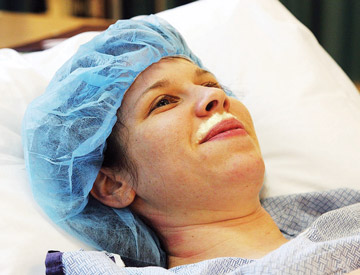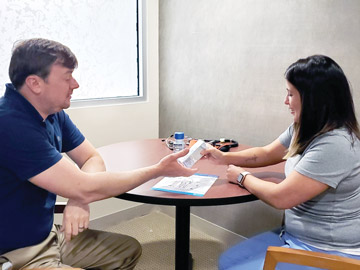It's important to engage patients in enhanced pre-op nutrition as soon as surgeries are scheduled, says Desiree Chappell, CRNA, of Louisville, Ky., who's a member of the board of directors of the American Society for Enhanced Recovery. The initial pre-op connection with patients is the perfect opportunity to talk about the importance of nutrition and how to start them down the enhanced recovery pathway, which usually involves getting them on an immunonutrition program — eating the right foods and taking vitamin D and omega-3 fatty acid supplements, for example — as soon as possible, according to Ms. Chappell.
But pre-op nutrition is a major shift in thinking for many patients. They generally aren't aware of the benefits and requirements, and the active participation it demands on their part, so ensuring compliance can be tricky. Experts stress providing them with detailed instructions.
"Patients need to understand what they're supposed to be doing. It's not enough to say, "Here you go, take this, and here's some written instructions' that may not make sense to a lot of people," says Ms. Chappell. "Anytime you're implementing something that's non-traditional, which this really is for surgery, you give not only written instructions, but also pictures of the products they're going to be taking."
She says some facilities have developed patient diaries or checklist pages — and some have even set up HIPPA-compliant smartphone apps that provide patients with alerts about what to eat and when, along with the ability to digitally communicate with their providers.
There's another half of the equation, too: making sure relevant staff are experts on pre-op nutrition and enhanced recovery. "Whoever's talking to the patient really needs to understand why you are doing it and what the benefits of it are," says Ms. Chappell.
"You can do so much when the patient is informed from the surgeon's office," adds Lynn Reede, DNP, MBA, CRNA, FNAP, senior consultant for education and practice at the American Association of Nurse Anesthetists.
"Work with the staff in those offices to help them understand how to talk with patients in a way that gives them confidence that they will be part of the decision-making and their care.
.svg?sfvrsn=be606e78_3)



.svg?sfvrsn=56b2f850_5)